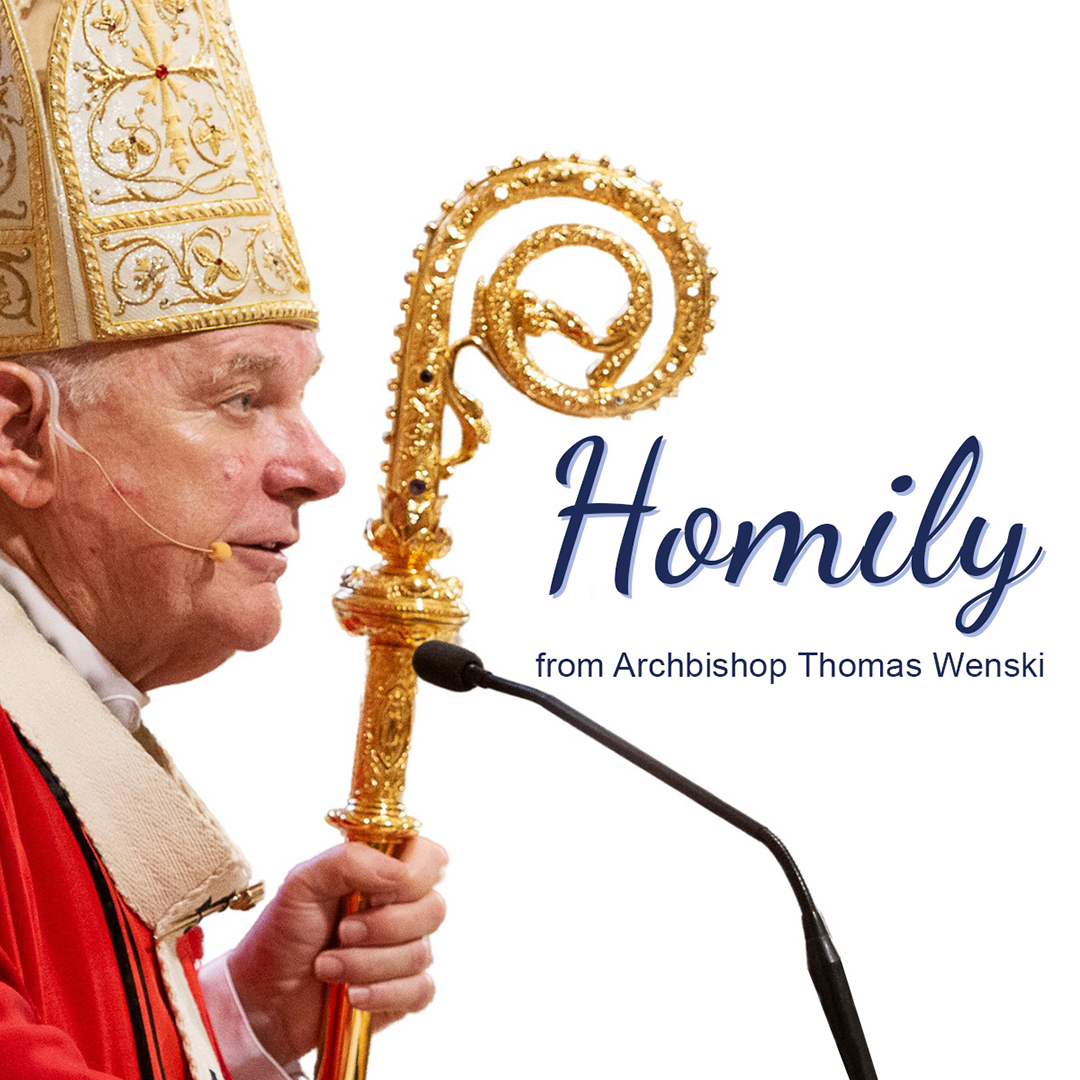By Archbishop Thomas Wenski - The Archdiocese of Miami
Archbishop Thomas Wenski preached this homily at St. Vincent de Paul Regional Seminary in Boynton Beach, Oct. 18, 2024, just before the annual Friends of the Seminary dinner gala.
In the responsorial psalm, our refrain was “Your friends make known, O Lord, the glorious splendor of your Kingdom.” In Haitian Creole – the language that I celebrated Mass and preached in daily for 18 years – the word "saint" is translated Zanmi Bondye; simply, a friend of God.
Luke certainly was one such friend – truly a Zanmi Bondye. Of course, today we welcome our guests, and friends, to St. Vincent de Paul Regional Seminary. We value your support for the seminary. We appreciate our friends – and we gather around the Eucharistic table because we all aspire to be not only friends of the seminary but also Zanmi Bondye, friends of God.
St. Luke, as we learn from the first reading, was a companion of St. Paul. He was also thought to be a physician and an early disciple of the Lord. He gave us the Gospel that bears his name as well as the account of the early history of the Church in the Acts of the Apostles.
Thanks to Luke, the Church’s prayer life is enriched with the Benedictus, the Magnificat and the Nunc Dimittis. Again, thanks to him and his Gospel, we have Jesus’ parables of the Good Samaritan and the Prodigal Son.
And, only in his Gospel, perhaps because of his being a physician, he describes Jesus as “sweating blood” during his agony. Luke, the physician, tells us how the power of God in Jesus seeks and finds those lost in the black labyrinths of sickness and despair.
In fact, the Gospel of Luke is the gospel of the lost who are found by God who searches us out and knows us. It’s the gospel of the woman lost in sin who anoints Jesus’ feet at the house of Simon the Pharisee. It’s the gospel of the woman lost in the agony of a crippling spirit for eighteen years. It’s the gospel of the woman lost in the terrible suffering of hemorrhages for twelve years. It’s the gospel of lepers lost in the stigma and isolation of their disease. It’s the gospel of Jairus who is lost in the terror of losing his sick daughter. It’s the gospel of the widow at Nain who had lost her only son and was now lost in the depths of grief.
The Gospel according to St. Luke had to be the favorite of this seminary’s patron, St. Vincent de Paul. St. Vincent de Paul had two great passions: the poor – he was the Mother Teresa of his age – and the formation of the clergy.
Jesus tells his disciples: “Carry no bag, no money, no sandals...” Just tell the people you meet “good news,” the “Kingdom of God is at hand for you.”
Tonight, we will honor two people – as is our custom – with the St. Vincent de Paul Award. Sister Carmen Alvarez, and Deacon Victor Pimentel. Both exemplify St. Vincent de Paul’s passion for the poor and the clergy.
Sister Carmen is a Claretian who has worked in the Archdiocese for about 50 years. And she is still working, at 93, as the director of Religious Education and director of the parish choir at Corpus Christi Parish in inner city Miami. I had the privilege of working with her in Hialeah, when I was a deacon. She helped prepare everything for my first Mass at St. Benedict in Hialeah. But as St. Paul says in Second Corinthians, “For you gladly put up with fools, being wise yourselves.” (cf 2 Corinthians 11: 19). Sister Carmen has put up with my wry sense of humor and teasing for many, many years. Many priests who were seminarians serving at Corpus Christi can tell you of her love for the priesthood, one of her brothers was a priest, but also of her no-nonsense supervision of their pastoral work in the parish.
Our other nominee is Deacon Victor Pimentel, who many of our seminarians know, and our faculty certainly knows. He has been director of the Permanent Deacon Office in the Archdiocese for more years than I can remember. He is truly a formator of those aspiring to serve as deacons in our Church, and once ordained, he helps them to work alongside the pastors in the parishes when they are sent. He is characteristically modest, but he is probably one of the best theologians among deacons in the US today.
But all of us here have a common vocation – our baptismal vocation – the call to holiness; that is, the call to become a Zanmi Bondye, and as a friend of God to make known his glorious splendor so that those lost today may still be found by God who never ceases to search us out and knows us to the core of our beings.
That’s what the 72 disciples did as they visited those villages ahead of Jesus; that’s what St. Paul did despite hardship and disappointments; that’s what Luke did as he wrote his gospel and the Book of the Acts of the Apostles; that’s what St. Vincent de Paul did; what our honorees strive to do; and so, should we.
“The harvest is abundant, but the laborers are few.” Jesus says, “so ask the master of the harvest to send out laborers for his harvest.” Whether we are called to be “laborers” in the harvest field or petitioners praying to the harvest master, all of us are responsible for the mission which is what brings us here tonight as friends of the seminary, as friends of Jesus and as Zanmi Bondye.

